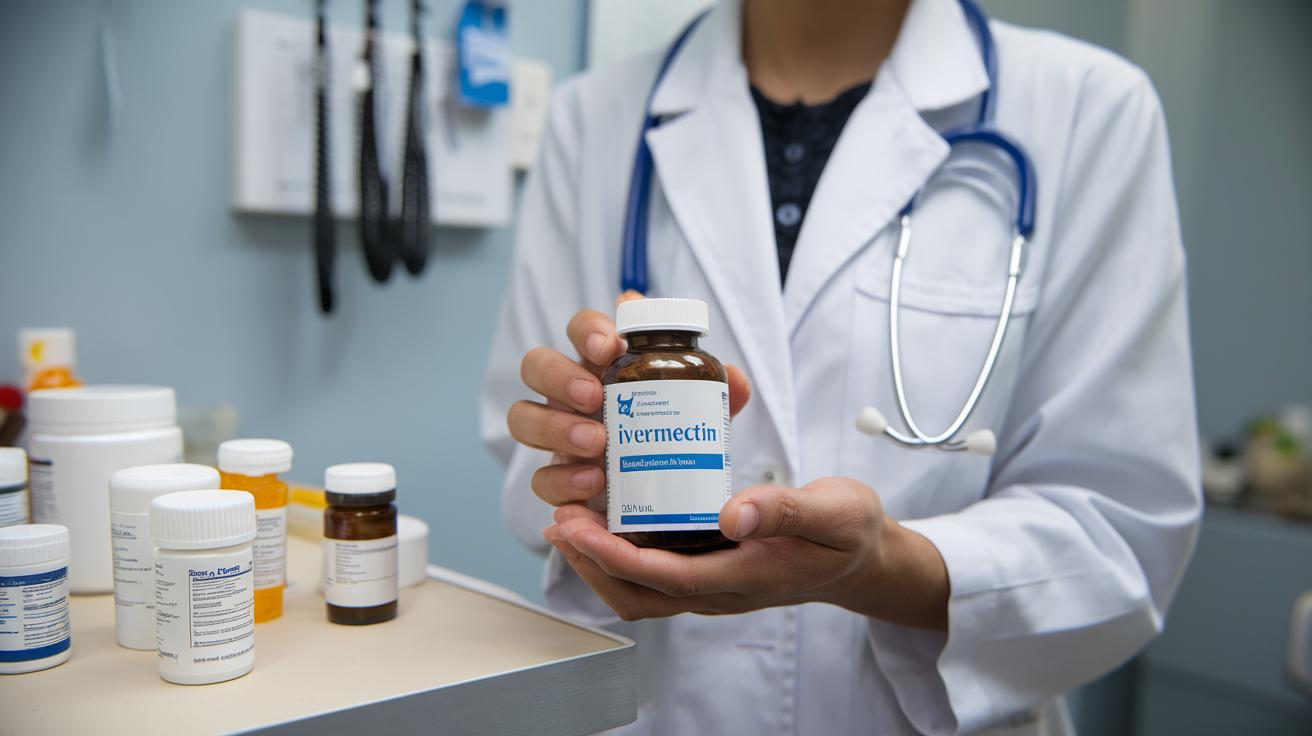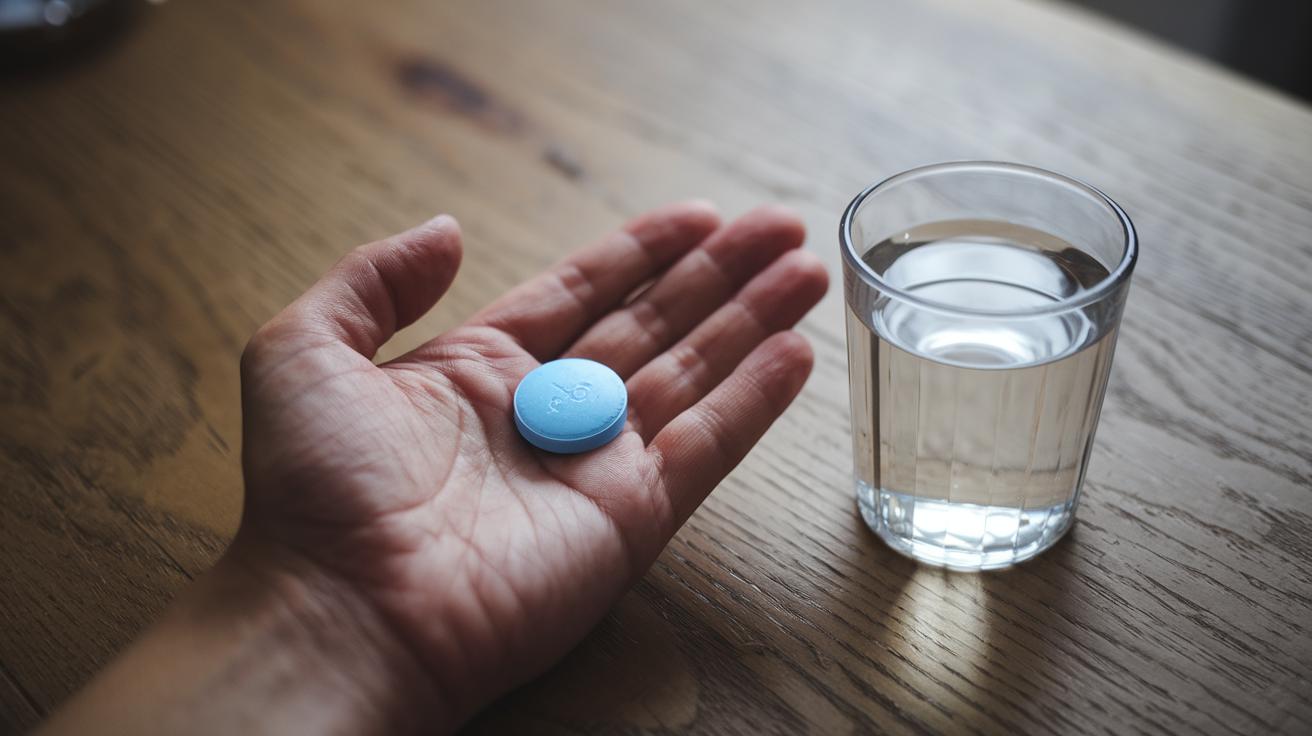Could a humble anti-parasitic agent hold the key to altering the course of diseases affecting millions worldwide? Ivermectin, a drug that emerged from Streptomyces avermitilis in the 1970s, has commanded attention for its extraordinary ability to paralyze and eradicate parasites through unique interactions with their electrolyte channels. This blog post delves into the captivating origins of Ivermectin, its diverse formulations ranging from oral tablets to topical lotions, and meticulously examines its mechanism of action. By understanding its fundamental nature, readers will gain insightful perspectives on its current and potential applications in combating parasitic infections.
Understanding What Ivermectin Is

Originating from a serendipitous discovery in the 1970s, Ivermectin is a groundbreaking anti-parasitic medication. Unearthed from the bacterium Streptomyces avermitilis in Japan, this potent drug quickly became a staple in both human and veterinary medicine. Its development earned a Nobel Prize in Medicine due to its immense impact on treating parasitic diseases. While initially lauded for its efficacy against infections such as strongyloidiasis and onchocerciasis, its versatility has expanded its usage across various medical applications.
Ivermectin is available in several forms, each tailored to specific medical needs:
- Oral Tablets: The most common form, often prescribed under the brand name Stromectol, with a typical strength of 3 mg.
- Topical Cream: Used primarily for skin conditions such as rosacea.
- Lotion: Formulated for external application, particularly effective against head lice.
The mechanism of action of Ivermectin is both intricate and highly effective. It operates by binding to specific electrolyte channels in nerve and muscle cells of parasites. This binding leads to increased permeability of the cell membrane to chloride ions, resulting in hyperpolarization. Consequently, it induces paralysis and death of the parasites. This targeted action makes Ivermectin exceptionally effective at disrupting the life cycle of parasitic organisms, significantly reducing their ability to survive and proliferate within the host.
Primary Uses of Ivermectin

What are the approved uses of Ivermectin in humans? Ivermectin is primarily prescribed for treating parasitic infections such as strongyloidiasis and onchocerciasis in adults and some children. These conditions are caused by parasitic worms and can lead to significant health issues if left untreated. Ivermectin's efficacy in treating these infections stems from its ability to paralyze and kill the parasites, interrupting their life cycle and relieving the symptoms associated with the infections. Besides these major applications, Ivermectin is also used to treat head lice and rosacea, expanding its utility in dermatological conditions.
How is Ivermectin used in veterinary medicine? In the realm of veterinary applications, Ivermectin plays a vital role in managing parasitic infections in animals, particularly in cattle and horses. It is employed as a de-wormer, effectively combating a wide spectrum of internal and external parasites. The medication's ability to eliminate parasites such as gastrointestinal worms, lungworms, and other infestations contributes significantly to maintaining the health and productivity of livestock. Ivermectin's broad application in veterinary medicine underscores its importance in ensuring animal welfare and agricultural success.
Does Ivermectin have any off-label uses or antiviral properties? While not officially sanctioned for such uses, Ivermectin has been explored for off-label applications and possesses broad-spectrum antiviral properties. It has been investigated in the context of various RNA viruses, where it can potentially inhibit virus entry by binding to the ACE2 receptor. This mechanism, though promising, requires more extensive clinical trials to establish its efficacy and safety for these off-label uses. The interest in Ivermectin's antiviral potential highlights the drug's versatility and the ongoing exploration of its broader therapeutic applications.
How do human and animal formulations of Ivermectin differ? Human Ivermectin formulations are distinct from those prepared for animals, emphasizing the need to avoid cross-usage. The formulations for animals are designed with different dosages and concentrations, tailored to the specific needs and physiological responses of various animal species. Using animal versions of Ivermectin in humans can lead to inappropriate dosing and potential toxicity. Therefore, it is essential to adhere strictly to the prescribed human formulations to ensure safety and therapeutic effectiveness.
Side Effects and Safety of Ivermectin

What are the common mild side effects of Ivermectin? Mild side effects frequently associated with Ivermectin use include drowsiness and nausea. These symptoms generally arise from the drug's interaction with the central nervous system and gastrointestinal tract, respectively. While typically manageable, these effects can vary in intensity depending on the individual's health status and the specific parasitic condition being treated.
Serious side effects of Ivermectin necessitate immediate medical attention, given their potential to escalate into life-threatening conditions. These include:
- Seizures
- Severe skin reactions such as rash or hives
- Difficulty breathing
- Loss of consciousness
- Confusion or disorientation
How does Ivermectin interact with other medications, and what precautions should specific groups take? Ivermectin can interact with medications like Warfarin, potentially leading to excessive bleeding due to the enhanced anticoagulant effect. Patients on such medications should consult their healthcare providers to mitigate risks. Pregnant individuals should avoid using Ivermectin, as its safety during pregnancy has not been adequately studied, necessitating careful consideration of alternative treatments.
What general safety advice should be followed when using Ivermectin? Adherence to prescribed dosages is crucial to minimizing adverse effects and maximizing therapeutic benefits. Ivermectin should be taken on an empty stomach with water to facilitate absorption. Patients should report any unusual symptoms or side effects to their healthcare provider promptly. Regular monitoring may be necessary to ensure the drug's effectiveness and safety throughout the treatment duration.
Ivermectin Dosage and Administration

How should the dosage of Ivermectin be determined? Precision in dosing is fundamental, with calculations typically based on the patient's body weight. This weight-based approach ensures that the drug's efficacy is maximized while minimizing the risk of adverse effects. For instance, the oral tablet form, commonly available in a 3 mg strength, is adjusted according to the specific parasitic infection being treated. Adhering to these tailored dosing guidelines is crucial for achieving optimal therapeutic outcomes and patient safety.
| Condition | Dosage |
|---|---|
| Strongyloidiasis | 200 mcg/kg once |
| Onchocerciasis | 150 mcg/kg once every 6 months |
| Head Lice | Topical application as directed |
What are the key tips for administering Ivermectin? Administration should occur on an empty stomach to enhance absorption, accompanied by a full glass of water. This method of intake facilitates the drug’s passage into the bloodstream, improving its effectiveness against parasitic infections. Consistent adherence to these administration guidelines can significantly impact the success of the treatment regimen. Regular monitoring and consultation with a healthcare professional can further ensure the medication is used safely and effectively.
Recent Discussions and Controversies Surrounding Ivermectin

What is the current stance of health authorities on Ivermectin's use for COVID-19? Health authorities, including the U.S. Food and Drug Administration (FDA), firmly state that Ivermectin is not authorized for the treatment or prevention of COVID-19. The FDA has issued explicit warnings against the use of Ivermectin in large doses or for unapproved purposes, citing a lack of evidence supporting its efficacy in combating the virus. This position is echoed by major health organizations worldwide, which do not endorse its use for COVID-19 outside the confines of clinical trials, thereby prioritizing patient safety and evidence-based practices.
Have recent research studies and clinical trials provided evidence for Ivermectin's effectiveness against COVID-19? Recent studies and clinical trials have explored Ivermectin's potential as a COVID-19 treatment, but results have not demonstrated conclusive evidence of its efficacy. While some preliminary studies indicated possible benefits, these findings have not been robustly replicated in larger, well-controlled trials. The scientific community remains cautious, emphasizing the necessity of rigorous, peer-reviewed research to substantiate any therapeutic claims. Thus, health authorities remain unconvinced of Ivermectin's role in COVID-19 treatment, underscoring the importance of adhering to validated treatment protocols.
What are other potential research areas for Ivermectin, and why do they remain controversial? Apart from COVID-19, Ivermectin has been discussed in the context of other research areas, such as cancer. Some early investigations suggest potential mechanisms by which Ivermectin might influence cancer cell behavior, yet these studies remain in nascent stages. The controversies arise from the extrapolation of preliminary data without thorough clinical validation. As ongoing debates persist within the medical community, it is crucial for future research to focus on rigorous methodologies to explore Ivermectin's broader therapeutic potential while maintaining scientific integrity and patient safety.
Final Words
Understanding what Ivermectin is encompasses its historical roots, chemical composition, and effective mechanism against parasites. Recognized for treating various parasitic infections in humans and animals, its uses extend beyond traditional applications, revealing potential antiviral properties. Awareness of possible side effects and proper dosage guidelines remains critical for safe use. Recent debates emphasize the need for continued research, especially concerning controversial claims regarding COVID-19. This exploration of Ivermectin affirms the complexity and potential of this medication, highlighting the importance of informed medical decisions and adherence to approved guidelines.
FAQ
What is ivermectin used for?
Ivermectin is used to treat parasitic infections such as strongyloidiasis and onchocerciasis in humans. It also treats head lice and rosacea and has veterinary applications for animals like cattle and horses.
What is ivermectin made from?
Ivermectin was discovered in the 1970s from Streptomyces avermitilis, a natural organism. It is available in various forms, including oral tablets and topical treatments like creams and lotions.
What are the side effects of ivermectin in humans?
Side effects of ivermectin can include drowsiness, nausea, and more serious reactions. Severe side effects require medical attention, and it may interact with other drugs like Warfarin.
How should ivermectin be taken?
Ivermectin should be taken on an empty stomach with a full glass of water. Dosage varies based on the specific infection and body weight; follow medical guidance for correct dosing.
What is ivermectin for dogs?
Ivermectin for dogs is used to prevent and treat heartworm and other internal and external parasites. It's crucial to use the correct formulation prescribed by a veterinarian.
Is ivermectin safe to use?
Ivermectin is generally safe when used as prescribed. However, improper use or large doses can cause adverse effects. Pregnant individuals should exercise caution due to insufficient safety studies.
What is ivermectin cream used for?
Ivermectin cream is primarily used to treat skin conditions like rosacea by reducing inflammation and combating parasites responsible for the condition.
What was ivermectin originally used for?
Ivermectin was originally developed and used for treating parasitic infections in animals before being adapted for human use against similar infections.
What parasites does ivermectin get rid of?
Ivermectin targets various parasites, including those causing conditions like strongyloidiasis and onchocerciasis, by binding to and deactivating specific electrolyte channels, leading to parasite paralysis and death.
What does ivermectin do to the brain?
In rare cases, ivermectin can cross the blood-brain barrier, potentially causing neurological effects. However, such instances are uncommon with standard therapeutic doses.
Is ivermectin a steroid or antibiotic?
Ivermectin is neither a steroid nor an antibiotic; it is an anti-parasitic medication used to treat infections caused by parasitic organisms.


